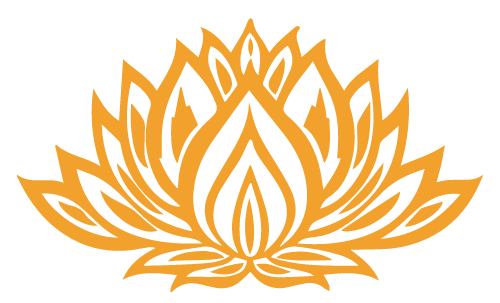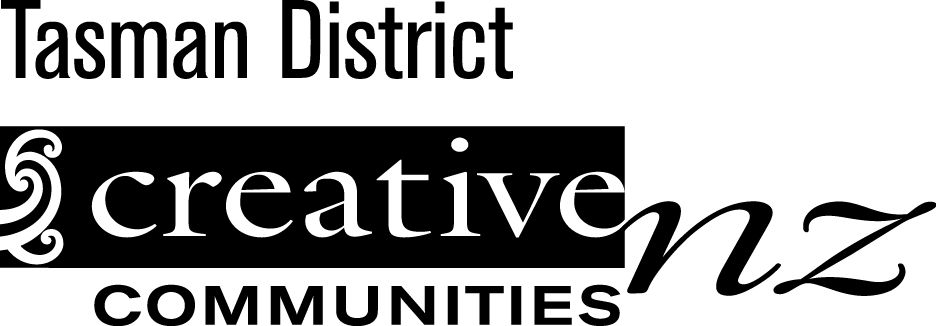DEATHWALKER'S GUIDE TO LIFE SEASON 2
EPISODE 14
Conversations With Patients About Dying
Above: Creative Commons image
NOVEMBER 27, 2022
EPISODE 14
Conversations With Patients About Dying
Death in Print: Staying by Jessie Cole, Meet: Urologist, surgeon and assisted dying practitioner Frank Kueppers, Death on Screen: Lecretia's Choice (on TVNZ's Sunday programme)
Listen to Episode 14 on the following podcast platforms
Or, if you've already listened to the show, scroll down for more info and links . . .
DEATH IN PRINT
Staying




In episode 14, I talk about the astonishing Australian author, Jessie Cole. I’ve just finished reading her second book – a memoir called Desire: A Reckoning, which came out in August this year. Her publisher, Text Publishing, describes it as an unabashed, thrilling exploration of the very nature of desire, as well as a story about vulnerability and strength, loss and regeneration.
I’ve been raving about it to a few friends who are keen to read it. However, as soon as I told them about it, I realised it would be a good idea for them to read her debut memoir, Staying, first. Not just because it precedes, chronologically, the events in Desire. But because I want to honour the author’s journey by giving my friends the opportunity to really understand the trauma she was carrying when the story that’s central to Desire takes place. And, while she touches on her family tragedies in Desire, it’s really the events that unfold in Staying that help the reader understand this trauma, in an unforgettable, visceral way.
Jessie Cole grew up in an isolated valley in northern New South Wales – not far from where I lived for 12 years. Her early childhood was full of creek swimming and barefoot free-range adventuring. That is, until her older half-sister takes her own life when Jessie is on the cusp of adolescence and then her father, wracked by pathological grief and mental illness, does the same thing, several years later.
Staying is the story of an adolescence “bookended” by the suicides of her half-sister and father, and the aftermath of these two appalling losses.
It took Jessie, who was already a published author – with two successful novels under her belt – about 10 years to write Staying, and it is, as a result, imbued with the introspective, depth of thought and compassion that you’d expect from a decade of processing and writing, reflection, and re-writing.
The result is a gentle, nuanced, compassionate tale. While it’s incredibly sad – and made me cry more than once – Staying somehow transcends despair.
As Tim Winton wrote in his front cover blurb for Staying, it’s "a wounded, lovely, luminous book about grief, trauma and the strange healing potential of words."
Staying: a memoir was longlisted for the 2019 Colin Roderick Award and shortlisted for the Victorian Premier’s Literary Award for Non-Fiction.
Now you may be wondering about my choice of text for this episode - being about suicide – when today’s guest is going to be talking about assisted dying. But I see it as an opportunity to dissect the language we have used, in the past, about both.
My teacher and friend, Zenith Virago – who founded the Natural Death Care Centre in Australia and has conducted numerous Deathwalker trainings across the globe – makes a deliberate point of not using the word suicide because it’s archaic and inappropriate now that the act is no longer against the law. Instead she says the person killed themselves or, at the very least, took their own life.
Like many other deathwalkers, I am an advocate of individual agency – that is, I believe in the right for an individual to decide for themselves when and how they wish to die.
That is NOT to say that I don’t acknowledge the huge amount of suffering that loved ones might feel when someone takes their own life. Or that I don’t discount what we need to do as a society to genuinely support those who are struggling with the job of living, whether it be because they have a mental illness, an addiction or are socioeconomically destitute. We can and must do more to ensure people who are struggling get help.
But I believe years of not talking about "suicide" has been part of the problem. For most of the 20th century and at least a decade into this one, it was the mainstream media’s official policy not to publish any details of a death caused by one’s own hand, because the experts feared that media coverage led to ‘copycat’ killings. As a result, up until about 2009, when there was a major Australian Senate inquiry, a cloak of silence remained the official federal and state government policy in Australia.
For me, it seems typical of the mainstream Australian culture in which I was brought up, and here in New Zealand pakeha culture too, where we didn’t learn how to express our emotions, where there was a stigma attached to those with a mental illness, where we didn’t talk about death generally and definitely not suicide. Instead, those of us who were a little unstable or vulnerable were just left alone to implode.
Finally, in 2011, the Australian Press Council introduced new reporting standards on suicide, leading to more open media coverage. The support groups on the frontline of mental health work supported this monumental shift, publicly agreeing that the stigma associated with suicide was a “negative force.”
For the same reason, most people who are in favour of end of life choice, also strongly oppose the use of "assisted suicide" and "suicide" when referring to physician-assisted euthanasia, and prefer phrases like "medical aid in dying" or "assisted dying".
I’ve been raving about it to a few friends who are keen to read it. However, as soon as I told them about it, I realised it would be a good idea for them to read her debut memoir, Staying, first. Not just because it precedes, chronologically, the events in Desire. But because I want to honour the author’s journey by giving my friends the opportunity to really understand the trauma she was carrying when the story that’s central to Desire takes place. And, while she touches on her family tragedies in Desire, it’s really the events that unfold in Staying that help the reader understand this trauma, in an unforgettable, visceral way.
Jessie Cole grew up in an isolated valley in northern New South Wales – not far from where I lived for 12 years. Her early childhood was full of creek swimming and barefoot free-range adventuring. That is, until her older half-sister takes her own life when Jessie is on the cusp of adolescence and then her father, wracked by pathological grief and mental illness, does the same thing, several years later.
Staying is the story of an adolescence “bookended” by the suicides of her half-sister and father, and the aftermath of these two appalling losses.
It took Jessie, who was already a published author – with two successful novels under her belt – about 10 years to write Staying, and it is, as a result, imbued with the introspective, depth of thought and compassion that you’d expect from a decade of processing and writing, reflection, and re-writing.
The result is a gentle, nuanced, compassionate tale. While it’s incredibly sad – and made me cry more than once – Staying somehow transcends despair.
As Tim Winton wrote in his front cover blurb for Staying, it’s "a wounded, lovely, luminous book about grief, trauma and the strange healing potential of words."
Staying: a memoir was longlisted for the 2019 Colin Roderick Award and shortlisted for the Victorian Premier’s Literary Award for Non-Fiction.
Now you may be wondering about my choice of text for this episode - being about suicide – when today’s guest is going to be talking about assisted dying. But I see it as an opportunity to dissect the language we have used, in the past, about both.
My teacher and friend, Zenith Virago – who founded the Natural Death Care Centre in Australia and has conducted numerous Deathwalker trainings across the globe – makes a deliberate point of not using the word suicide because it’s archaic and inappropriate now that the act is no longer against the law. Instead she says the person killed themselves or, at the very least, took their own life.
Like many other deathwalkers, I am an advocate of individual agency – that is, I believe in the right for an individual to decide for themselves when and how they wish to die.
That is NOT to say that I don’t acknowledge the huge amount of suffering that loved ones might feel when someone takes their own life. Or that I don’t discount what we need to do as a society to genuinely support those who are struggling with the job of living, whether it be because they have a mental illness, an addiction or are socioeconomically destitute. We can and must do more to ensure people who are struggling get help.
But I believe years of not talking about "suicide" has been part of the problem. For most of the 20th century and at least a decade into this one, it was the mainstream media’s official policy not to publish any details of a death caused by one’s own hand, because the experts feared that media coverage led to ‘copycat’ killings. As a result, up until about 2009, when there was a major Australian Senate inquiry, a cloak of silence remained the official federal and state government policy in Australia.
For me, it seems typical of the mainstream Australian culture in which I was brought up, and here in New Zealand pakeha culture too, where we didn’t learn how to express our emotions, where there was a stigma attached to those with a mental illness, where we didn’t talk about death generally and definitely not suicide. Instead, those of us who were a little unstable or vulnerable were just left alone to implode.
Finally, in 2011, the Australian Press Council introduced new reporting standards on suicide, leading to more open media coverage. The support groups on the frontline of mental health work supported this monumental shift, publicly agreeing that the stigma associated with suicide was a “negative force.”
For the same reason, most people who are in favour of end of life choice, also strongly oppose the use of "assisted suicide" and "suicide" when referring to physician-assisted euthanasia, and prefer phrases like "medical aid in dying" or "assisted dying".
FOR MORE INFORMATION ABOUT STAYING AND JESSIE COLE
Find out more about Jessie Cole.
Follow Jessie Cole on Instagram.
Read more about Rebekah Ballagh.
Find out more about Jessie Cole.
Follow Jessie Cole on Instagram.
Read more about Rebekah Ballagh.
KŌRERO / CONVERSATION
Meet Frank Kueppers

In episode 14, I speak with Frank Kueppers, who is a urologist, surgeon and assisted dying practitioner.
Frank was born Germany. He undertook his medical training at Christian-Albrechts-University in Kiel, Germany.
In 2003, Frank immigrated to New Zealand with his wife and two sons after a stint as a locum, as the island doctor, on an atoll in Tokelau.
His wife is acclaimed journalist and author Anke Richter, who wrote her second book, Tokelau - 200 Tage (200 Days in Tokelau), about their experiences there.
Today, Frank is a urologist and urological surgeon at Christchurch Hospital and has recently become a certified assisted dying practitioner.
We discuss his own experience of death as well as how he supports his patients at the end of their lives.
Frank nominated 'Space Oddity' by David Bowie as a song he would like played at his funeral or wake. Listen to the song in our 'Farewell songs' playlist.
Frank was born Germany. He undertook his medical training at Christian-Albrechts-University in Kiel, Germany.
In 2003, Frank immigrated to New Zealand with his wife and two sons after a stint as a locum, as the island doctor, on an atoll in Tokelau.
His wife is acclaimed journalist and author Anke Richter, who wrote her second book, Tokelau - 200 Tage (200 Days in Tokelau), about their experiences there.
Today, Frank is a urologist and urological surgeon at Christchurch Hospital and has recently become a certified assisted dying practitioner.
We discuss his own experience of death as well as how he supports his patients at the end of their lives.
Frank nominated 'Space Oddity' by David Bowie as a song he would like played at his funeral or wake. Listen to the song in our 'Farewell songs' playlist.
DEATH ON SCREEN
Lecretia's Choice
Lecretia Seales' partner Matt Vickers wrote a book called Lecretia’s Choice (which was published in 2016), but since our focus in this segment is on the screen, I introduce two videos available on YouTube: a 2015 interview with Lecretia on TVNZ's Sunday programme and the post-humous 2020 Lecretia Seales Memorial Lecture, which played a pivotal role in the campaign in support of the End of Life Choice Act.
Here’s the backstory: In 2011 Lecretia was diagnosed with a brain tumour. When brain surgery, chemotherapy and radio therapy didn’t work, she took her case to the High Court in 2015. Essentially, she challenged New Zealand law for her right to die with the assistance of her GP, and asked for a declaration that her GP would not risk conviction.
Prior to getting ill, Lecretia worked for the Department of Prime Minister and Cabinet, and the Law Commission alongside Sir Geoffrey Palmer, so she had both the skills and connections to really make the case for physician-assisted dying in Aotearoa New Zealand.
In her statement of claim, Seales explained that:
I have accepted my terminal illness and manage it in hugely good spirits considering that it's robbing me of a full life. I can deal with that, and deal with the fact that I am going to die, but I can't deal with the thought that I may have to suffer in a way that is unbearable and mortifying for me.
I have lived my life as a fiercely independent and active person. I have always been very intellectually engaged with the world and my work. For me a slow and undignified death that does not reflect the life that I have led would be a terrible way for my good life to have to end.
I want to be able to die with a sense of who I am and with a dignity and independence that represents the way I have always lived my life. I desperately want to be respected in my wish not to have to suffer unnecessarily at the end. I really want to be able to say goodbye well.
Regrettably, it took another six years after her death until physican-assisted dying became legal in Aotearoa NZ.
If you want to find out more about the incredible legacy she left, you’ll find links to both videos – as well as other useful resources – on my website.
Here’s the backstory: In 2011 Lecretia was diagnosed with a brain tumour. When brain surgery, chemotherapy and radio therapy didn’t work, she took her case to the High Court in 2015. Essentially, she challenged New Zealand law for her right to die with the assistance of her GP, and asked for a declaration that her GP would not risk conviction.
Prior to getting ill, Lecretia worked for the Department of Prime Minister and Cabinet, and the Law Commission alongside Sir Geoffrey Palmer, so she had both the skills and connections to really make the case for physician-assisted dying in Aotearoa New Zealand.
In her statement of claim, Seales explained that:
I have accepted my terminal illness and manage it in hugely good spirits considering that it's robbing me of a full life. I can deal with that, and deal with the fact that I am going to die, but I can't deal with the thought that I may have to suffer in a way that is unbearable and mortifying for me.
I have lived my life as a fiercely independent and active person. I have always been very intellectually engaged with the world and my work. For me a slow and undignified death that does not reflect the life that I have led would be a terrible way for my good life to have to end.
I want to be able to die with a sense of who I am and with a dignity and independence that represents the way I have always lived my life. I desperately want to be respected in my wish not to have to suffer unnecessarily at the end. I really want to be able to say goodbye well.
Regrettably, it took another six years after her death until physican-assisted dying became legal in Aotearoa NZ.
If you want to find out more about the incredible legacy she left, you’ll find links to both videos – as well as other useful resources – on my website.
Watch Lecretia's Choice
Listen to previous Season 2 episodes
OUT APRIL 24, 2022
EPISODE 1
Death in Print: Death and its Terrible, Horrible, No Good, Very Beautiful Lessons by Becky Aud-Jennison, Meet: Deathwalker and author Becky Aud-Jennison, Death on Screen: 'Good Grief'
OUT MAY 8, 2022
EPISODE 2
Death in Print: What Days Are For by Robert Dessaix, Meet: Septuagenerian climate activist Bill McEwan, Death on Screen: Nelson Poetry Map featuring Bill Manhire's poem, 'Kevin'
OUT MAY 22, 2022
EPISODE 3
Death in Print: An Hour to Live, An Hour to Love by Richard Carlson, Meet: Storyteller Tanya Batt, Death on Screen: Imagined Worlds website
OUT JUNE 5, 2022
EPISODE 4
Death in Print: Wild Darkness by Eva Saulitis, Meet: Natural burial pioneer Dawn Jones and her daughter Sylvia Bauer Death on Screen: NZ Natural Burial directory
OUT JULY 3, 2022
EPISODE 5
Death in Print: Actions & Travels: How Poetry Works by Anna Jackson, Meet: Singer/songwriter Nick Feint Death on Screen: 'Good Bones' by Maggie Smith
OUT JULY 24, 2022
EPISODE 6
Death in Print: 'Thanksgiving in Mongolia' by Ariel Levy, Meet: Christchurch Death Cafe and Death Matters NZ founder Melanie Mayell Death on Screen: Baz Luhrmann's 'Elvis'
AUGUST 7, 2022
EPISODE 7
Death in Print: The Eulogy by Jackie Bailey, Meet: Funeral director, interfaith minister and author Jackie Bailey Death on Screen: The Beautiful Lie
OUT AUGUST 21, 2022
EPISODE 8
Death in Print: Finding True Connections by Gareth St John Thomas, Meet: Krisca Gould and Mary Garner from Nelson Tasman Hospice, Death on Screen: Te Kahu Pairuri o Aotearoa Hospice New Zealand website
SEPTEMBER 18, 2022
EPISODE 9
Death in Print: Remote Sympathy by Catherine Chidgey, Meet: Dr Kathryn L Smith, GP who provides physician-assisted dying services, Death on Screen: Station Eleven
OCTOBER 2, 2022
EPISODE 10
Death in Print: My Mother and Other Secrets by Wendyl Nissen and Remember Me by Charity Norman, Meet: Deathwalker and artist Aralyn Doiron, Death on Screen: Trail of Light and Giving Back to the Earth by Green Renaissance
OUT OCTOBER 16, 2022
EPISODE 11
Death in Print: Dying: A memoir by Cory Taylor, Meet: Home-based death care practitioner Claire Turnham, Death on Screen: Death is not the endpoint featuring Zach Bush
OUT OCTOBER 31, 2022
EPISODE 13
Death in Print: 'Facing Extinction' by Catherine Ingram, Meet: Environmental activist and Living Legacies founder Lynda Hannah, Death on Screen: Living in the Time of Dying
OUT NOVEMBER 13, 2022
EPISODE 13
Death in Print: Words of Comfort by Rebekah Ballagh, Meet: Threshold singing group director Valerie Wycoff, Death on Screen: Threshold Choir website
Catch up on Season 1 episodes
OUT OCTOBER 3, 2021
EPISODE 2
Death in Print: Before You Knew My Name, Meet: author Jacqueline Bublitz, Death on Screen: 'Dead to Me'
OUT OCTOBER 17, 2021
EPISODE 3
Death in Print: Listen: How to Find the Words for Tender Conversations, Meet: author Kathryn Mannix, Death on Screen: 'Phone of the Wind'
OUT OCTOBER 31, 2021
EPISODE 4
Death in Print: No Pressure, No Diamonds, Meet: legal executive Marie Austin, Death on Screen: 'I Told You I Was Ill: the Life & Legacy of Spike Milligan'
OUT OCTOBER 31, 2021
EPISODE 4
Death in Print: No Pressure, No Diamonds by Teri Dillion, Meet: legal executive Marie Austin, Death on Screen: 'I Told You I Was Ill: The Life and Legacy of Spike Milligan'
OUT NOVEMBER 14, 2021
EPISODE 5
Death in Print: H is for Hawk by Helen Macdonald, Meet: poet & playwright Donna McLeod, Death on Screen: 'Living with Ghosts'
OUT NOVEMBER 28, 2021
EPISODE 6
Death in Print: Mortals: How the Fear of Death Shaped Human Society by Rachel & Ross Menzies, Meet: psychologist and author Rachel Menzies, Death on Screen: Lisel Mueller on 'The Marginalian'
OUT DECEMBER 12, 2021
EPISODE 7
Death in Print: No One is Talking About This by Patricia Lockwood, Meet: author Bonnie Etherington, Death on Screen: 'My Beautiful Broken Brain'







